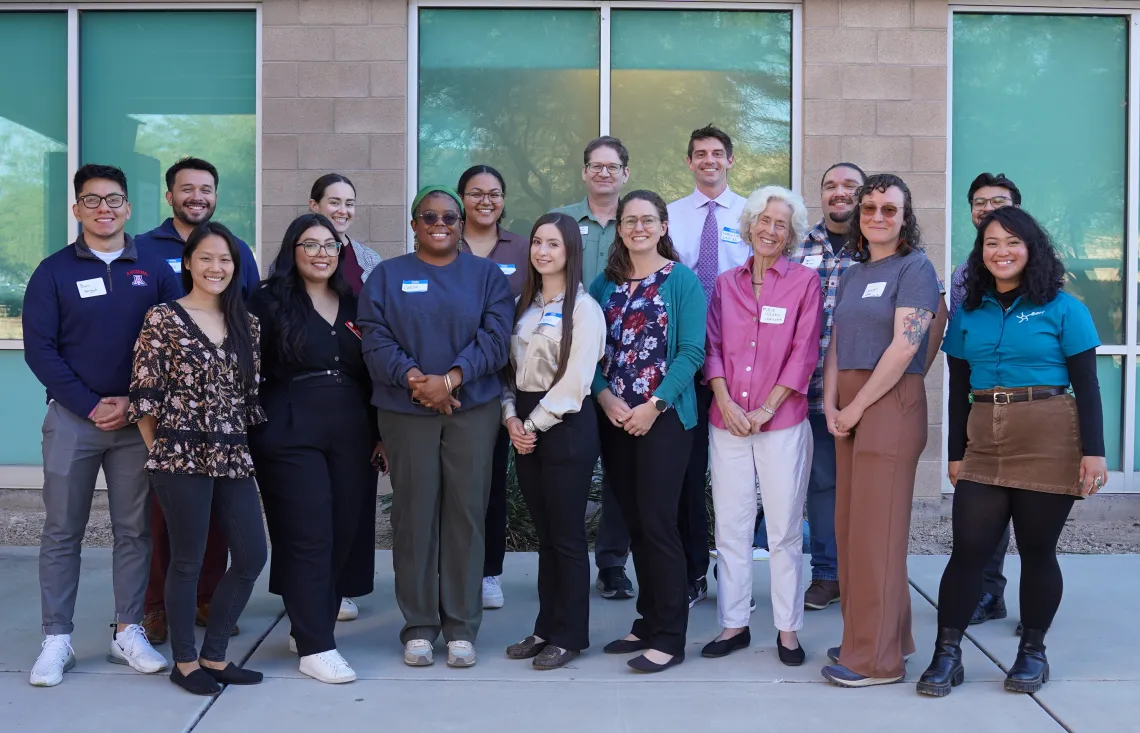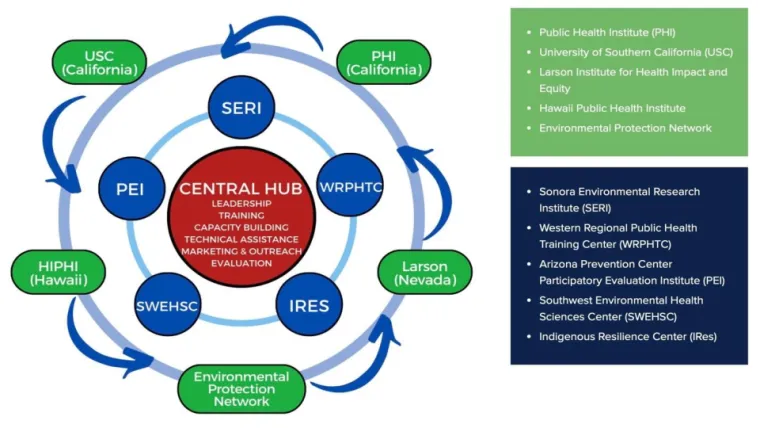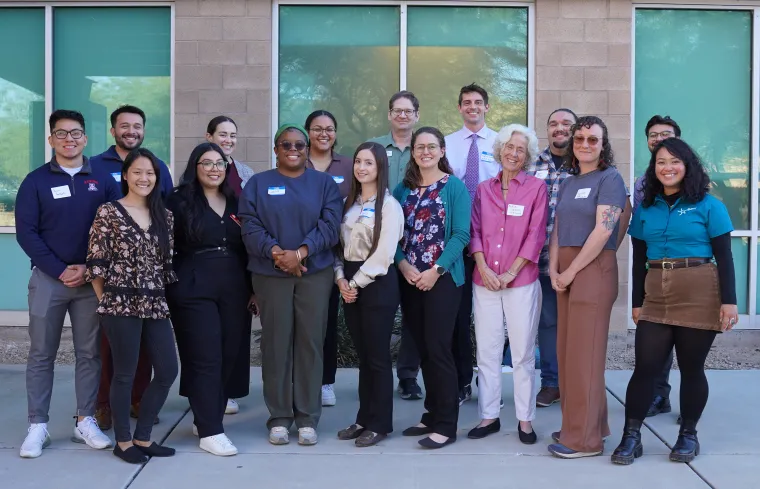WEST EJ Center Kicks Off by Presenting Services to Increase Environmental Justice for Historically Marginalized Communities

Photo by Torran Anderson, Indigenous Resilience Center
In June of 2023, the Environmental Protection Agency (EPA) awarded $10 million to the University of Arizona to fund the Western Environmental Science Technical Assistance Center for Environmental Justice, or WEST EJ Center, for five years. This funding will help advance environmental justice, which is under the new Executive Order (EO) 14096 Revitalizing Our Nation’s Commitment to Environmental Justice for All (2023) defined as the fair treatment and meaningful involvement of all people regardless of race, color, national origin, or income with respect to the development, implementation and enforcement of environmental laws, regulations and policies. The EPA’s promise of clean air, land and water has not reached many historically marginalized communities due to a complex interaction of physical, social and economic factors, and the WEST EJ Center brings together a diverse coalition with longstanding relationships and extensive expertise working with communities to overcome these barriers.
WEST EJ Center, which is a one of the 16 EPA’s Environmental Justice Thriving Communities Technical Assistance Center kicked off its activities on January 24th, 2024 with a virtual event bringing together 160 participants. The virtual event included an introduction of the Center, as well as several breakout rooms in English and Spanish where participants were able to learn about the WEST EJ Center’s free help on grants navigation, community leadership, and technical expertise , as well as provide feedback and express needs from their communities.
WEST EJ Center’s Director, Dr. Paloma I. Beamer, who is an interim Associate Dean for Community Engagement and Professor in the Zuckerman College of Public Health at the University of Arizona, shared that WEST EJ Center is built on Environmental Justice Principles established at the First People of Color Environmental Leadership Summit (1991). These principles center the sacredness of Mother Earth, respect for multiple cultures and beliefs, and decolonizing methods and assure self-determination and environmental justice for all. Dr. Nathan Lothrop, Associate Director, WEST EJ Center explains the approach to the kick-off, "Our Center team wants to meet communities where they are, so they can most effectively get assistance. At the same time, we can all learn from one another, and this is why most of our virtual kickoff was a discussion."
To put these principles into practice, the Center follows a hub-and-spoke model, with a central hub composed of several units within the University of Arizona, including the Indigenous Resilience Center (IRes) in the Arizona Institute for Resilience, the Participatory Evaluation Institute at the Arizona Prevention Research Center, the Southwest Environmental Health Sciences Center and the Western Region Public Health Training Center, as well as the Sonora Environmental Research Institute, an Arizona nonprofit. The spokes represent a coalition with five partners that have deep community-based networks and knowledge about environmental and energy justice needs across EPA’s Region 9. These partner organizations include the Public Health Institute, a California nonprofit; the University of Southern California; the Larson Institute for Health Impact and Equity at the University of Nevada, Reno; and the Hawai’i Public Health Institute, a nonprofit in Hawai’I, and the Environmental Protection Network, a national nonprofit (see the diagram below; photo of the partners was taken by Torran Anderson of IRes).


The Center offers free grants navigation, fosters community leadership with community resource fairs, student internships and community champions, provides advocacy trainings and resources, and offers technical expertise and assistance with research study design and statistics and mapping environmental and energy justice data.
For example, at the virtual kickoff event, the Center’s facilitators asked the participants what knowledge, skills or capacity do communities need to address environmental justice in their communities. Some tribal members shared the need to replace old software and obsolete measuring devices. When the Center introduced the summer student internship program, Melodie Lopez, who works with Indigenous youth in Arizona via the EcoTruths for Indigenous Youth program that focuses on developing their environmental leadership capacities, emphasized that host organizations for youth interns need to understand how to work with Indigenous youth: “Indigenous youth often bring a lot of Traditional Environmental Knowledge (TEK) to the table that might not be well received or respected.” Ms. Lopez wanted to see that internship sites can receive and work with Indigenous youth, which was acknowledged to be a valuable insight for the Center.
The Center will continuously engage in listening and consultation sessions, and the next virtual Community Check-In Monthly Meeting will be held on February 6th with a topic of Brownfields 101. To learn more, sign up for the newsletter, or request help, visit their website at https://westejcenter.arizona.edu/contact-us.
Learn about all the ways we can help your group or organization tackle environmental or energy justice challenges by visiting westejcenter.arizona.edu/how-we-can-help.
Not sure where to start? For hands-on help, contact WEST EJ Center team:
📧 WESTEJ-Center@arizona.edu
📞 1 (877) 518-4634
🌐 westejcenter.arizona.edu #EPA
-- Katarina "Nina" Sajovec Altshul, Haury Program
